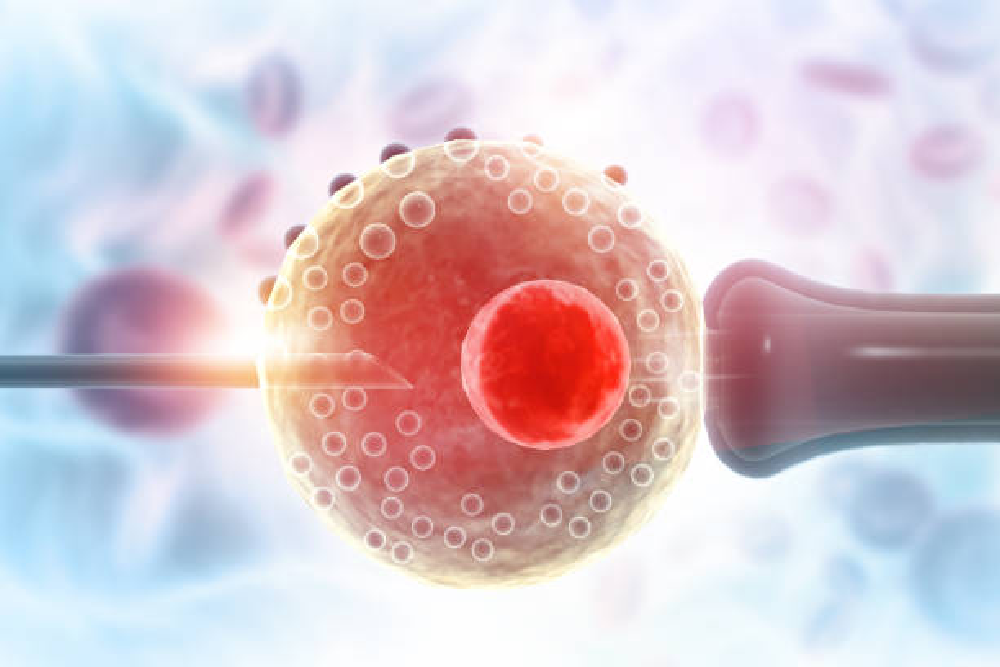Breastfeeding & weaning

All that you need to know about Breastfeeding
A mother’s arms and breasts are the best place for a new-born. This is because the new-born’s primary needs are warmth, food and security, and breastfeeding satisfies all these demands. New mums are encouraged to breastfeed within the first hour of delivery (called the ‘golden hour’) because this will help the baby latch on more easily and enable easier lactation for the mother. As you begin to breastfeed your baby, you touch, speak and spend more time gazing and smiling at each other.This demonstrates a greater sense of “bonding and security”. Infants suckle their mother’s breast longer than with bottles and this helps a baby fall back to sleep much faster.
So, what are some of the key benefits of breastfeeding your baby? What are some common problems faced and how do we solve them? When and how should a mum wean the baby?
Read on for answers for all these and more.
Nutritional Benefits of Breast Milk
Every drop of breast milk is referred to as ‘liquid gold’, as it has unique, rich nutrients that are essential for the baby’s growth needs. The fluid made by breastfeeding mothers for first few days is called colostrum. It is made in small amounts and is a rich source of immune protective factors and developmental factors.
Breast milk contains proteins, fats, carbohydrates, Vitamins B12, D, A, E and K, mineralslike iodine, as well as bioactive factors (living cells, antibodies, growth factors, hormones, probiotics). Breastmilk is literally a powerhouse of antibodies that provide the first source of adaptive immunity in a new-born’s intestinal tract. Breast milk also containshormones and nucleotides that play an important role in developing healthy sleep patterns.
Here are some key benefits of breastfeeding:
- Helps prevent infections, diabetes and obesity in the infant. Breastfed babies are at 13% to 14% lower risk of developing obesity as breast milk helps maintain optimum weight gain.
- Improves the cognitive abilities of a baby, and has been linked to higher IQ scores in older children.
- Aligns proper sleeping pattern in babies, and helps calmthe baby down for restful and longer sleep.
- Breastfeeding is observed to help in the prevention of cancer, diabetes, heart disease, high blood pressure in mothers.
The Science Behind Breastfeeding and Mother–Baby Bonding
The two hormones involved in breastfeeding are prolactin and oxytocin. When your baby suckles at the breast, the touch of the mouth on the nipple and areola sends sensory impulses that pass from the nipple to the brain, and these hormones are secreted.
Prolactin is helpful for keeping up the milk supply. Oxytocin gets the milk flowing for the current feed, and helps baby get the milk easily. Moreover, oxytocin helps to create a feeling of relaxation and reduces stress. It also enhances the feelings of affection and promotes bonding between the mother and baby. At first this is an unconditioned reflex, in response only to the physical stimulus whenever the baby sucks. Later, it becomes a conditioned reflex and the cry, sight, or loving thoughts about the baby may cause breast milk to flow. Each breast has an individual control of milk production – that is why, sometimes, if a baby suckles only on one breast, the other breast will stop lactating or making milk.
How Much and How Often Should a Mother Breastfeed?
Many new moms fear that they are not producing sufficient milk – and this causes them to get anxious!
To allay this fear, let’s first understand how much a new born needs per feed. A new-born’s stomach is about the size of a shooter marble (holds about 5ml to 7ml) on Day1. It grows to the size of a ping pong ball (holds about 22ml to 27ml) on Day3, and an extra-large chicken egg (holds about 60ml to 81ml) on Day10. So, relax!You have just the right amount of milk to feed your baby, and your body instinctively ‘knows’ what to do.
In the first month, new born babies breastfeed 8 to 12 times a day,for about 20 to 40minutes. As breast milk is easily digested, new-borns often feel hungry. New mothers need not worry that they may be unable to lactate or produce sufficient milk for so many feeds. Frequent feedings itself will help to stimulate lactation during the first few weeks. Also, it is important to note that new-borns should not go more than 4 hours without feeding, even overnight.
When the baby is 1 to 2 months old, they may need to feed 7 to 9 times a day. As babies gets older, they become more skilled and may take about 5 to 10 minutes on each breast and have a more predictable schedule.Soon, the mother won’t need to wake the sleeping baby to feed, and she can start sleeping for longer periods as well.It is advised that the mother nurse the babyatboth breasts at regular intervals as this helps to keep up milk supply in both breasts and prevent painful engorgement.
Breastfeeding Technique:
- Wash your hands before breastfeeding.
- Make sure your back is well supported – use pillows for your back and a foot stool to provide comfortable support.
- Hold the baby’s head and body in a straight line, and make sure the baby’s head and neck are not turned or twisted.
- Hold the baby as close to you as possible.The baby should face the breast, opposite to the nipple, to enable deep latching.
- Form a ‘C’ with your hand and hold your breast with the thumb on top and forefingers underneath. Keep your fingers away from the areola.
- Make sure that the nipple is aimed at the roof of the baby’s mouth. This can be done when baby’s head is slightly extended. Lightly touch the baby’s lip with the nipple and wait till he/she opens his/her mouth wide.
- Bring your baby to the breast (NOT the breast to the baby).
- You may remove your hand from the breast, once the baby has latched on properly.
- Once the baby has finished feeding, without putting them down, gently move him/her to an upright position and onto your shoulder (if you are able to stand or sit with your legs dangling down from the bed or chair) or on your chest (especially if you are sitting in a cross-legged position). Pat their back softly. This will help the baby to ‘burp’ and release any gas that is in their stomach. Some babies may spit up a small amount of their feed, so keep a small, soft cloth on your shoulder when burping them.
If you are a working mother and unable to breastfeed your baby directly, you can pump your breast milk and store it. Make sure the area where you are pumping is free from dust or pollution, and that your pump parts and bottles are very clean and dry. Breast milk can be stored up to four hours after pumping at room temperature.
What aboutWeaning?
When you start breastfeeding your baby, you may hard to believe how the process will come to an end. Weaning is a necessary process, but keep in mind that it is different for every mother and child.Here are some simple pointers you can follow.
- Breastfeed on demand but don’t offer or force it on the baby if he/she doesn’t initiate the suckling.
- Drop one feed at a time, based on how your child and your own body adjusts to it.
- Night weaning usually works well for most parents but follow what works for you and your baby. In case of night weaning, the father, a family member or a helper may have to help out in terms of soothing the baby to go back to sleep after feeding.
- Sometimes, babies nurse for comfort.In such cases, try and find a comforting substitute for a nursing session – a special soft toy, cosy pillow, blanket or cloth book are great alternatives. Do remember to add on extra snuggles even as they get used to the substitute item.
- You could try and change your schedule or routine by stepping out of the house or scheduling a bath at a time when the baby maytypically want to nurse.
- If you feel you aren’t ready to drop a session fully just yet, you can either postpone or stop the session earlier than usual.
- Have your partner or family member handle the night time routine. Babies love their pre-bedtime nursing session. Having a partner or trusted caregiver take over to hold and comfort them before bedtime can help you drop that feeding.
Answers to Common FAQs
I have small breast. Can I produce enough milk for my baby?
Yes, you can. The breast size depends on the fatty tissue in the body, and this does not determine lactation or production of breast milk. It’s only the glandular tissue that produces breast milk. Production of a good supply of breast milk depends on how often you breastfeed your baby (and definitely not on your breast size).
How can I be assured that my new-born is sufficiently fed?
Some key pointers to see if your new born is drinking enough breast milk:
- If your breasts feel softer and less full after feeds
- Your new-born has 1 or 2 wet nappies in first 48 hours, and 5 to 6 heavy wet nappies after 5 days
- Your baby is settled and content
How often should I feed my new born?
Your baby is your best guide!So, feed your new born whenever he/she wants. This is the best way to nourish your child.
My baby feeds far too often in the evenings – is this normal?
Yes, this is normal and there is no need to worry! This is called ‘cluster feeding’ and normally happens in babies during growth spurts. In such cases, they may feed more often in the evenings than by following the routine of feeding every 2 to 3 hours. Cluster feeding can make you feel exhausted and restless, but it is beneficial in boosting your milk supply and increases ‘skin-to-skin’ time, which has emotional benefits. Also, cluster feeding won’t be a permanent habit for your baby
When should I think about weaning my baby?
Weaning is a personal decision to be taken by a mom. The World Health Organization recommends that infants should be exclusively breastfed for the first six months of life, and recommends breastfeeding for the first 2 years of a child’s life.When a baby is breastfed well, they don’t usually require supplementation by water for formula for at least six months. For introduction of other foods (starting with semi-solids), do consult your doctor or paediatrician for advice.
What foods can help me to boost my milk production?
A nutritionally balanced diet is recommended for all new mothers. In addition, foods like oat milk, pumpkin, fenugreek, garlic, lean meat and poultry, beans and legumes can help to boost milk production.
At every step of the way, remember that you have all the support you need in the form of your doctors and paediatricians. Bloom Fertility & Healthcare is a Breastfeeding Friendly Facility and we have experts who can help with all aspects of lactation and breastfeeding. Contact us or book an appointment now.











